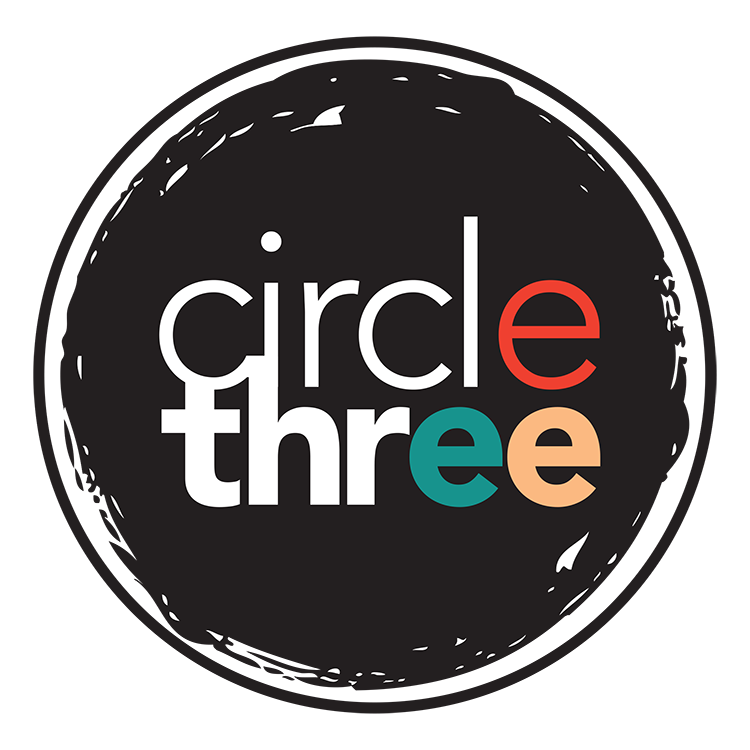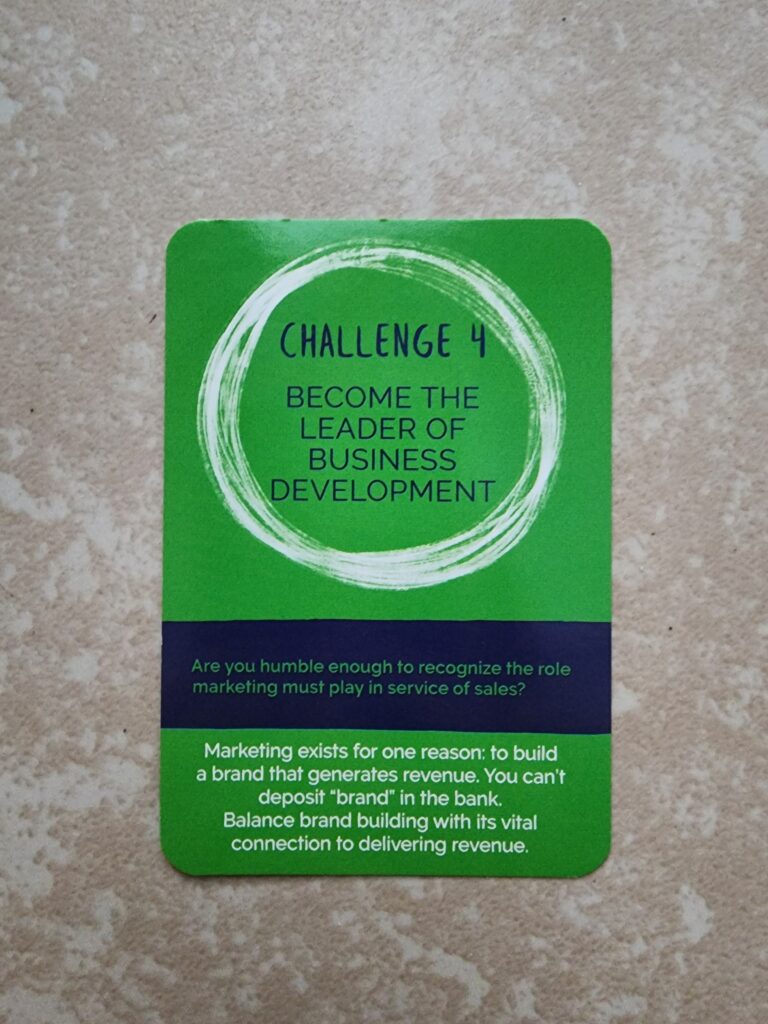It’s time for marketers to deliver revenue and become leaders of business development. We’re not just pretty designs and quirky trends. We’re the ones designing strategies and tools that bring leads to the sales team. Successful companies that understand this make marketing part of their business development team. This means making marketers part of the conversation when it comes to business growth instead of a tool to use when needed.
The Origin of Marketers as Leaders of Business Development
A note from Jessica Shrout, President of Circle Three Branding: If you know me, you know I have a pretty intense thirst for knowledge and I’m a collector: I collect facts and tidbits that will serve me later. This often comes in the form of books and tools that fill my library shelves. I was recently stuck in an airport between legs of a journey and found myself browsing the bookstore. That’s where I saw a deck of cards called “Marketing Mess to Brand Success,” by Scott Jeffrey Miller. Each card is meant to serve as a marketing challenge to change the way you think about marketing for your organization. I’ll be honest: I don’t love all of them, but some of them are worth conversation. So that’s what we’re going to do: talk about my favorite challenges. Over the next few months, I’ll post those favorites and we’ll explore what it means for waste, recycling, and sustainability organizations.
Marketers in Business Development
In the realm of waste management, the role of marketers extends far beyond creating visually appealing designs. Today, marketers are integral players in crucial business conversations about direction, growth, and sales. So let’s talk about how marketers can actively contribute to revenue generation by collaborating closely with other departments within the business – whether you’re a private hauler, a municipality, or another type of sustainability-focused organization – by fostering a synergistic approach to overall business success.
- Strategic Alignment with Business Objectives: Marketers should actively participate in defining and shaping business objectives. By aligning marketing strategies with broader organizational goals, they ensure that every campaign and initiative contributes directly to the company’s growth and revenue targets. Don’t have your marketer work in a silo or as a tool to take out only when needed.
- Data-Driven Decision-Making: Marketers have access to valuable consumer data that can inform key business decisions. By leveraging analytics and market insights, they can provide valuable inputs to sales and business development teams, enabling more informed and targeted strategies. Conversely, your marketer should be able to articulate how the organization is performing. Not all marketing impact can be measured numerically, but a lot of it can be in this digital age and you should be taking advantage of the reporting your marketer can do.
- Lead Generation and Sales Enablement: Marketing teams play a pivotal role in lead generation. By deploying targeted campaigns, content marketing, and effective SEO, marketers can attract qualified leads for the sales team. Additionally, they should collaborate closely with sales teams to create sales enablement materials that align with customer needs and pain points. This is a touchy subject: marketing absolutely should remain independent from sales. Don’t get me started on the dysfunction I’ve seen in mid-level executives with title of “Marketing AND Sales Manager” – it’s just far too much for one person to manage and both roles need to be able to function independently. You’re setting someone up for failure when you make them wear both hats at the same time. That said, your head of marketing needs to work closely with your head of sales because they are each other’s best secret weapon.
- Brand Positioning for Revenue Impact: Marketers should focus on positioning themselves as a revenue driver rather than just a service provider. Highlighting unique selling propositions, competitive advantages, and success stories in marketing materials can enhance the brand’s appeal and directly contribute to increased sales. This is also why it doesn’t work to make marketing part of the sales role: sales communicates their goals and the real-world success of the brand while marketing develops the strategy and tools for sales to use.
- Customer-Centric Marketing: Understanding customer needs and preferences is crucial for sustained growth. Marketers should actively engage with customer feedback, conduct surveys, and collaborate with customer service teams to ensure that marketing efforts resonate with the target audience, ultimately driving customer satisfaction and loyalty. This is sometimes an uncomfortable role to be in, but it’s incredibly crucial for sales, operations, and leadership to hear these reports.
- Collaboration Across Departments: Break down silos between marketing, sales, business development, and other departments. Encourage open communication and collaboration to ensure that marketing initiatives are seamlessly integrated into overall business strategies. Regular cross-functional meetings can foster a more cohesive approach to achieving common goals.
- Performance Metrics and Accountability: Establish clear performance metrics that tie directly to revenue goals. Marketers should be accountable for tracking and reporting on the success of their campaigns in terms of lead conversion, customer acquisition, and revenue generation. This data-driven approach allows for continuous optimization and improvement.
- Agile Marketing for Adaptability: In a rapidly evolving industry, marketers should embrace agile methodologies. This enables them to quickly adapt to changes in the market, customer preferences, and industry regulations. The ability to pivot marketing strategies in response to real-time data ensures ongoing relevance and effectiveness.
Wrapping Up
The era of marketers being confined to creating aesthetically pleasing designs is long gone. In the waste management industry, marketers are indispensable contributors to business direction, growth, and sales. By strategically aligning with business objectives, leveraging data for decision-making, driving lead generation, positioning the brand for revenue impact, fostering collaboration, focusing on customer-centric marketing, implementing clear metrics, and embracing adaptability, marketers can directly impact revenue generation and play a pivotal role in the holistic success of commercial waste haulers, municipalities, and sustainability organizations.
We’ll cover more Marketing Mess topics, cognitive biases, and logical fallacies in upcoming blog posts, so be sure to stay tuned. If you’re interested in see how Circle Three Branding applies these to your marketing strategy, contact us.

